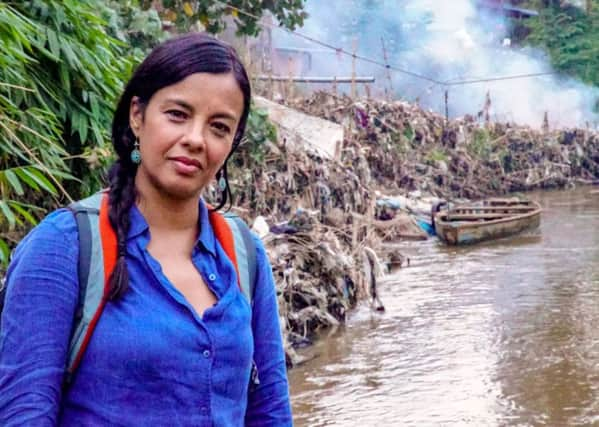Documentary reveal '˜crazy' extent of marine pollution


Presenter Liz Bonnin, who fronts the 90-minute film, has been deeply affected by the disturbing scenes the crew witnessed during shooting.
“I had completely underestimated the scale of the problem,” she said. “I’m not trying to over-dramatise it, but it is much more shocking than I could ever have imagined.
Advertisement
Hide AdAdvertisement
Hide Ad“There is now nowhere on the planet that is free from plastic, that much is clear.”
In the film, titled Drowning In Plastic, Bonnin travels to places where there is more rubbish than fish in the rivers and fishermen, deprived of their traditional catch, have turned to trawling for items they can sell on for recycling.
On a remote island in the Tasman Sea she meets a team of conservationists who spend their time “emptying” baby seabirds whose bellies are so full of plastic they cannot take off for the first time. Elsewhere, she sees first-hand the dreadful results of entanglement.
Bonnin, a qualified scientist, says the experience of making the programme has left her deeply distressed but also inspired by the people committed to tackling the issue. “It’s overwhelming just how bad the problem is,” she said.
“I can’t for the life of me understand why we have let it get to this stage, because it seems like an absolute disaster zone everywhere you look on the ocean, and there are people working night and day, endlessly, trying to save animals, find out more and get the plastic out of the ocean. It’s a crazy, crazy situation.”
She hopes the film will act as a wake-up call and rally people and governments to step up efforts to solve the problem.
“All I can say is shame on us. Scientists have been trying to get the message across that we were heading for a crisis in our oceans because of the volume of plastic that doesn’t ever go away, that is being dumped into our oceans from all sorts of different sources, and we didn’t listen.”
Drowning in Plastic will air at 8.30pm on Monday, 1 October on BBC1